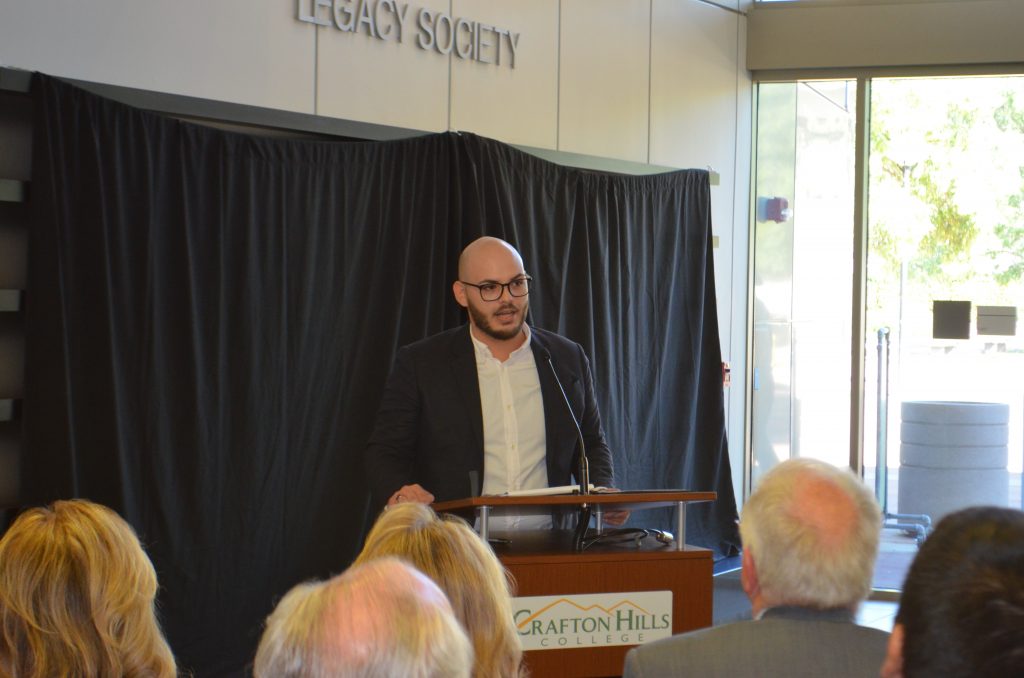By Tess Eyrich
In 2010, during the last decennial population count, nearly one in four Inland Empire households didn’t mail back their census questionnaire. What’s more, another 40,000 people throughout the region didn’t receive a questionnaire by mail at all.
Why does this matter? Because undercounted regions miss out on vital federal and state funding, hindering potential growth in those regions for years to come. In a place like the Inland Empire, which has seen significant growth over the past decade, missing out on funding could be especially damaging.
This fall, staffers and students at the University of California, Riverside, are mobilizing in a variety of ways to ensure a more accurate regional population count in 2020.
Leading the charge is the Center for Social Innovation, which two weeks ago spearheaded the formation of UCR Counts, the university’s official Complete Count Committee. An initiative of the U.S. Census Bureau, the Complete Count Committees program is key to creating census awareness in communities nationwide through targeted outreach efforts.
UCR Counts brings together representatives from the center, which is housed within the School of Public Policy; Student Life; Governmental & Community Relations; the Associated Students of UC Riverside, or ASUCR; and Undocumented Student Programs.
Complementing the committee’s efforts, on Oct. 16, ASUCR passed its first Senate Resolution of the fall 2019 quarter, encouraging student leaders, student organizations, and administrators to participate in census efforts.
The resolution was co-authored by Eric Calderon and Luis Huerta, two members of ASUCR’s Executive Cabinet who also serve as student representatives on UCR Counts. It emphasizes UCR’s responsibility to host informational sessions about the census and promote census education and resources on campus.
Perhaps more importantly, however, it underscores the university’s role in driving outreach to so-called “hard-to-count” communities, including undocumented immigrants, non-English speakers and/or households, and racial and ethnic minorities, among other groups.
“One key statement in the resolution that will drive our work is, ‘Students are often important advocates, translators, guides, and trusted messengers for their family, friends, and community,’” said Marlenee Blas, associate director of the Center for Social Innovation, who is leading the on-campus census efforts. “We’re really relying on our students as trusted messengers for their communities.”
During a visit with members of UCR Counts on Oct. 24, Ditas Katague, director of California Complete Count, the office coordinating census efforts statewide, discussed the importance of UCR’s work and shared outreach strategies.
“Our hard-to-count populations in California are full of fear,” she said. The current political climate, Katague noted, has increased wariness among many people in hard-to-count communities, which also include low-income groups, people experiencing homelessness, and those living in rural or geographically isolated areas.
“People keep asking, ‘What’s different this year?’” she added. “But what they should be asking is, ‘How can we make the difference?’ Because everyone knows the political environment this year is different. But for me, what’s going to make the difference is the youth — period.”
Katague said the Census Bureau’s pivot to a digital format in lieu of traditional paper questionnaires puts young people on the forefront of outreach and education efforts.
For the first time, the bureau is asking most people to answer the census online. Katague believes this opens up a realm of opportunities to promote the census through social media, for example, as well as for young people to help their older relatives and friends with completing it.
Katague was joined in the visit to UCR by Mignonne Pollard, education outreach manager for California Complete Count, and Quintilia Ávila, regional program manager for California Complete Count’s efforts throughout Southern California.
Pollard said California Complete Count will work over the next year to partner with the University of California, individual UC campuses, and UC’s various Basic Needs programs to ensure harder-to-count populations are reached in 2020.
The statewide team will also use the recently passed ASUCR resolution as an example when visiting other universities to promote census efforts, they said.
On campus, UCR Counts has plans to collaborate with several departments and groups, such as Residential Life, the ethnic and gender programs based in Costo Hall, and the Academic Senate.
A major aspect of the Oct. 24 meeting involved figuring out how UCR Counts might better connect with undocumented students, in particular, and those with ties to other hard-to-count populations both in the region and statewide.
The campus committee builds on the Center for Social Innovation’s ongoing work in coordinating census outreach efforts across Riverside and San Bernardino counties, said Karthick Ramakrishnan, a professor of public policy and political science who serves as director of both the center and the Inland Empire Complete Count Committee.
“Efforts like UCR Counts will give students a once-in-a-decade opportunity to deepen their applied research skills and serve their communities, either through paid census job opportunities or through service-learning opportunities that draw on their talents and passions,” Ramakrishnan said.
Likewise, Blas emphasized that UCR students — many of whom are Pell Grant recipients and first-generation college students — have the potential to make big impacts in their communities.
Students can assist with the committee’s efforts by talking to their families and friends about why it’s important to participate in the census. The census will take place on April 1, in the middle of the first week of the spring 2020 quarter, making spring break a prime time for initiating conversations with loved ones about how to participate.
“Concentrate your efforts on the hardest of the hard to count,” Katague said. “And please document everything you’re doing,” she added, so that in another 10 years, the campus might be able to follow the blueprint established by UCR Counts.
 Westside Story Newspaper – Online The News of The Empire – Sharing the Quest for Excellence
Westside Story Newspaper – Online The News of The Empire – Sharing the Quest for Excellence


